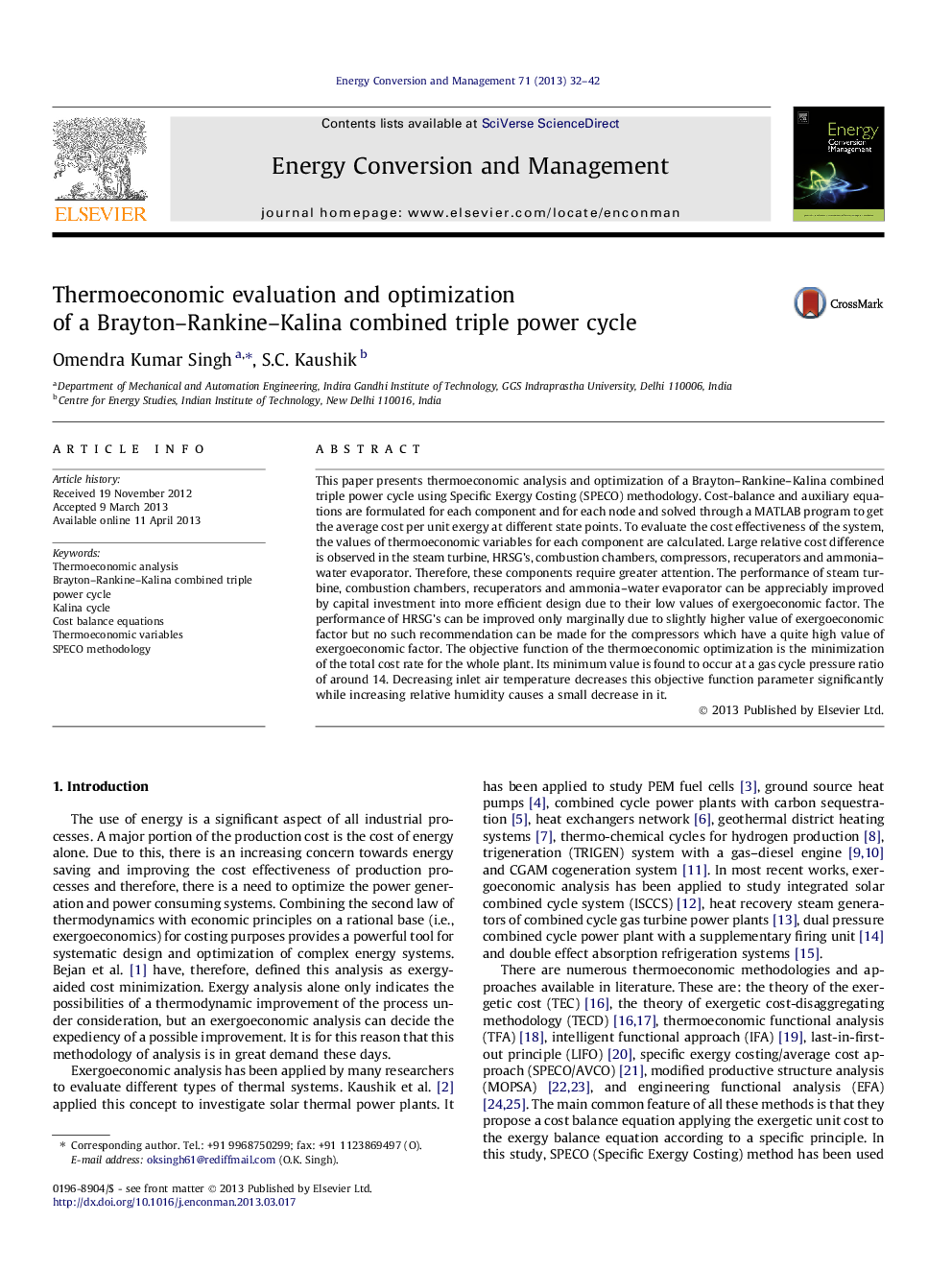| Article ID | Journal | Published Year | Pages | File Type |
|---|---|---|---|---|
| 772144 | Energy Conversion and Management | 2013 | 11 Pages |
•Combustion chamber performance can improve much by investment in efficient design.•Steam turbine performance would also improve by investment in efficient design.•Minimum total cost rate of plant found at gas cycle pressure ratio of around 14.•Total cost rate decreases significantly by decreasing the inlet air temperature.•Total cost rate decreases a little by increasing the inlet air relative humidity.
This paper presents thermoeconomic analysis and optimization of a Brayton–Rankine–Kalina combined triple power cycle using Specific Exergy Costing (SPECO) methodology. Cost-balance and auxiliary equations are formulated for each component and for each node and solved through a MATLAB program to get the average cost per unit exergy at different state points. To evaluate the cost effectiveness of the system, the values of thermoeconomic variables for each component are calculated. Large relative cost difference is observed in the steam turbine, HRSG’s, combustion chambers, compressors, recuperators and ammonia–water evaporator. Therefore, these components require greater attention. The performance of steam turbine, combustion chambers, recuperators and ammonia–water evaporator can be appreciably improved by capital investment into more efficient design due to their low values of exergoeconomic factor. The performance of HRSG’s can be improved only marginally due to slightly higher value of exergoeconomic factor but no such recommendation can be made for the compressors which have a quite high value of exergoeconomic factor. The objective function of the thermoeconomic optimization is the minimization of the total cost rate for the whole plant. Its minimum value is found to occur at a gas cycle pressure ratio of around 14. Decreasing inlet air temperature decreases this objective function parameter significantly while increasing relative humidity causes a small decrease in it.
